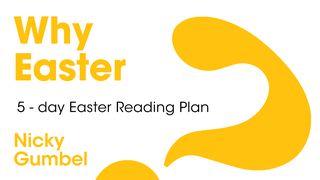30 Days in the PsalmsSýnishorn

Day #18: Psalm 88
In Psalm 88, we hear again the voices of the Korahites, as they lead the exiled Israelites in prayer. This psalm, however, is a very different sort of prayer than Psalm 84. We can imagine even the worship leaders struggling to put on a face of hope; here, the loss of the temple, land, and identity looms over them like an impenetrable cloud of darkness. Although they know the goodness of God and have staked their claim on his faithfulness, this prayer spills out of a moment when the weight of loss and the pain of their situation is simply too great to permit a song of praise. Of all the laments in the book of Psalms, this is the one that is mostly unrelieved by glimmers of hope. And yet—here it is in our Scriptures! This tells us something about God himself and also about prayer—God does not shun the gut-level honesty of his people when they cry out in anguish over the brokenness of their lives and their world.
In the middle of the night, these singers shout out their complaints to God. We can almost picture them standing in the Babylonian darkness, heads thrown back, yelling up into the night sky. They describe their situation as “full of troubles”; they feel as if they are trembling on the brink of the abyss (v. 3). The pain that cuts them to the heart is the sense of being abandoned and forgotten by God, of being overwhelmed by his anger (vv. 4–9). They hurl rhetorical questions at God with the full force of their own anger and confusion: “Are the dead a live audience for your miracles? Do ghosts ever join the choirs that praise you? Does your love make any difference in a graveyard? Is your faithful presence noticed in the corridors of hell? Are your marvelous wonders ever seen in the dark, your righteous ways noticed in the land of no memory?” (vv. 10–12, MSG). In other words, “If you leave us in this desperate condition, there will be no one to praise you!” It’s a bold prayer, born out of deeply painful circumstances.
And yet there are two glimmers of hope that keep this raw lament from devolving into merely a bitter complaint. This praying community begins with a determination to stay in the conversation, to persist in holding fast to God: “Lord, you are the God who saves me; day and night I cry out to you” (v. 1, NIV). Then again, in verse 13, they make the same choice: “But [despite everything] I cry to you for help, Lord; in the morning my prayer comes before you.” Night and morning, day and night—they allow each 24-hour period of their life to be shaped and framed by persevering prayer. Even as they continue to wrestle with the “why” and “how long” of their current circumstances, they will do so in the presence of God.
Is your soul full of troubles today? This is a good day to stay in the conversation with God, offering him your honest words of lament.
Ritningin
About this Plan

Most of Scripture is God’s Word to human beings, but the Book of Psalms records human speech to God. These prayers and songs demonstrate the determination of people of faith to remain connected to God, regardless of their circumstances. Confession, lament, pleading, thanksgiving, praise—all the elements of our communication with God are present. The 150 Psalms in the collection are divided into 5 “books.” During these 30 days, we’ll pray through 6 psalms from each book. Some will be very familiar, others perhaps less so; all will direct our gaze to the God who loves us.
More








